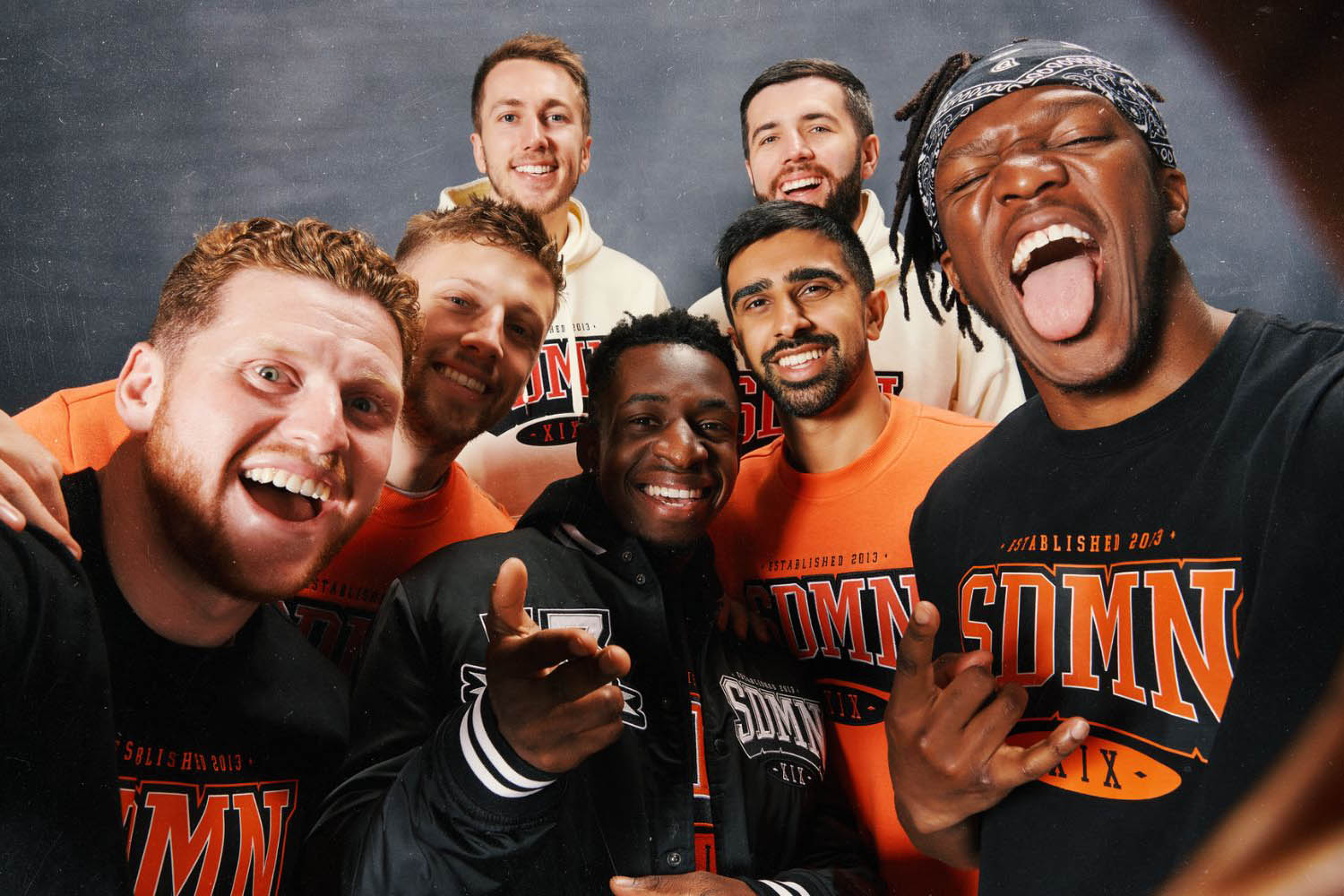Tony Blair famously targeted “Mondeo Man”, the working-class voter from Essex. The Sidemen like to quip about reaching a different demographic: “Barry from Stockport”, who “loves a night out with the boys”.
Any group of mates in their late 20s and early 30s have inside jokes. But as Europe’s largest YouTube creator collective, the Sidemen are unique in having built a business empire sharing them with 150 million followers across social media in videos that have had more than 50bn views.
“There are people who drive Amazon trucks who might not love what they do every day, who might not have a beautiful relationship with their parents, but on Sundays they laugh when we release our stuff,” said Victor Bengtsson, who became the collective’s managing director in 2023.
Churning out content for Barry has its limits, though. Since the Sidemen emerged in 2013, they have matured, striking out with side projects including a chicken shop chain, a vodka brand, and, most recently, a reality show deal with Netflix.
This year, the group, which includes Olajide “KSI” Olatunji and Harry “W2S” Lewis, launched a venture capital fund – Upside VC – with the express aim of bolstering startups that streamline content creation.
Its focus, said general partner Jamie Elliott, is “consumer technology”, consisting mainly of apps, marketplaces and tools for online creators. Last year, it co-led a seed round for Ceartas, a Dublin-based startup that uses AI to provide copyright protection for content creators (piracy has been a bugbear for the Sidemen).
The $25m (£18.2m) fund has made at least 12 investments of between £100,000 and £500,000, five of which have already received follow-on funding. It is understood the fund’s latest venture will be in ChatBCC, a company that wants to commercialise earwigging on WhatsApp group chats with celebrities, politicians and YouTube stars.
The Sidemen are “highly involved” in every step, said Elliott, and many have built and marketed companies of their own. Upside VC is also working with at least 11 other creators and influencers and their products: “We’re trying to do it for longevity. We’re trying to build something that scales beyond the guys. That’s why we have other creators on board.”
The creator economy, as it is known, is booming. In 2024, US startups in the sector raised about $1.7bn, according to Crunchbase data. Goldman Sachs says the addressable market could roughly by 2027 from $250bn today.
Large household brands, including Unilever and L’Oréal, claim to have moved more than half their overall advertising budgets into “influencer marketing”. To these companies, groups such as the Sidemen are a holy grail – a treasure chest full of gen Z and gen Alpha eyeballs.
Newsletters
Choose the newsletters you want to receive
View more
For information about how The Observer protects your data, read our Privacy Policy
Plenty of creators who went viral in the 00s and 2010s have built diversified businesses, with YouTube’s MrBeast being the prime example. Analysis of two Forbes lists – the top 100 creators and the top 100 actors – reveals that six of the top 10 best-paid names now hail from the internet rather than Hollywood.
“As the first wave of creators grows older, they’re now building their own agencies. They have their own funds. Creators and executive producers have become synonymous,” said Bengtsson.
Caspar Lee, a London-born South African vlogger who built an audience of 6 million, was one of the first of that generation to make the foray into venture capital. At 31, he now runs a fund worth $45m that has backing from the likes of Sequoia and Cendana Capital. He has invested in startups such as Beehiiv, a newsletter platform, and the UK-based running app Runna.
He says creators are “natural entrepreneurs” and possess assets that traditional venture capital players might lack: “Some of the founders building around AI, they’re so young, they’re so dynamic,” Lee said. “You have to speak to them in a way the old guard might struggle to do.”
For many of their fans around the world, the success of the Sidemen or Lee has become a fresh source of aspiration at a confusing time. But it is not easy: only about 0.04% of YouTube creators reach 1 million subscribers and a similarly small fraction earn six figures or more.
Do they ever worry about Barry being left behind?
“I think we’re living in a world where the idea of ‘role models’ risks becoming ‘apostles’,” said Bengtsson. “The key is being responsible for your space. We’ve interpreted that as we need to highlight and amplify creators who do good.”

